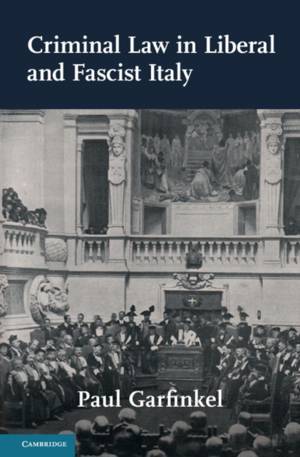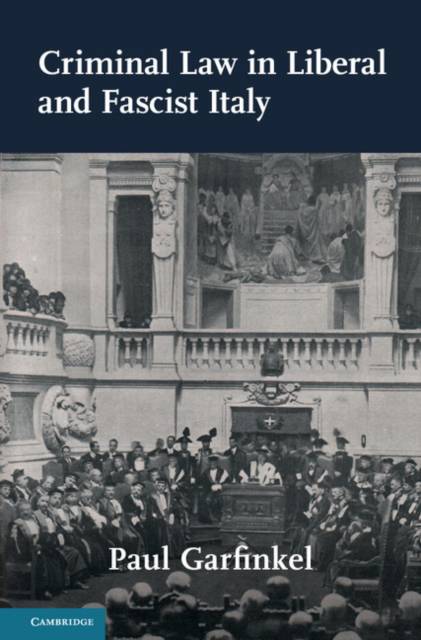
- Afhalen na 1 uur in een winkel met voorraad
- Gratis thuislevering in België vanaf € 30
- Ruim aanbod met 7 miljoen producten
- Afhalen na 1 uur in een winkel met voorraad
- Gratis thuislevering in België vanaf € 30
- Ruim aanbod met 7 miljoen producten
Zoeken
Omschrijving
By extending the chronological parameters of existing scholarship, and by focusing on legal experts' overriding and enduring concern with 'dangerous' forms of common crime, this study offers a major reinterpretation of criminal-law reform and legal culture in Italy from the Liberal (1861-1922) to the Fascist era (1922-43). Garfinkel argues that scholars have long overstated the influence of positivist criminology on Italian legal culture and that the kingdom's penal-reform movement was driven not by the radical criminological theories of Cesare Lombroso, but instead by a growing body of statistics and legal researches that related rising rates of crime to the instability of the Italian state. Drawing on a vast array of archival, legal and official sources, the author explains the sustained and wide-ranging interest in penal-law reform that defined this era in Italian legal history while analyzing the philosophical underpinnings of that reform and its relationship to contemporary penal-reform movements abroad.
Specificaties
Betrokkenen
- Auteur(s):
- Uitgeverij:
Inhoud
- Aantal bladzijden:
- 536
- Taal:
- Engels
- Reeks:
Eigenschappen
- Productcode (EAN):
- 9781107108912
- Verschijningsdatum:
- 9/01/2017
- Uitvoering:
- Hardcover
- Formaat:
- Genaaid
- Afmetingen:
- 158 mm x 239 mm
- Gewicht:
- 889 g

Alleen bij Standaard Boekhandel
+ 322 punten op je klantenkaart van Standaard Boekhandel
Beoordelingen
We publiceren alleen reviews die voldoen aan de voorwaarden voor reviews. Bekijk onze voorwaarden voor reviews.











